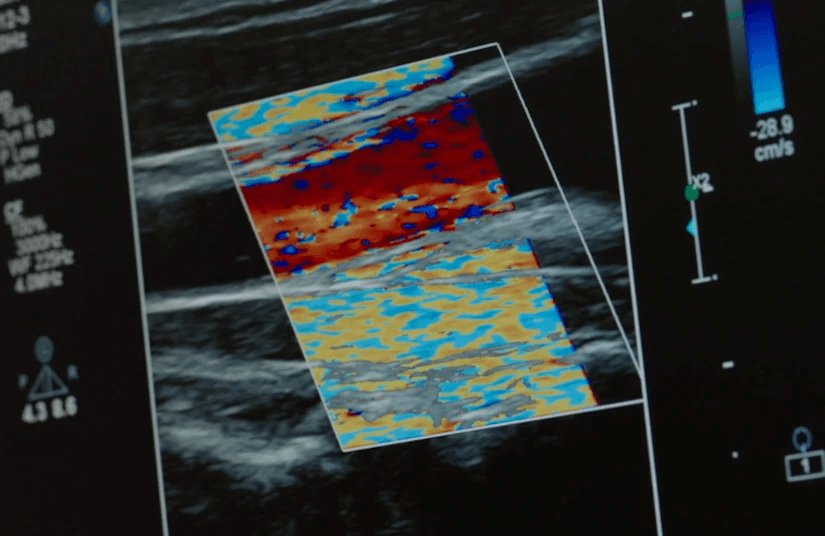
What You Should Know:
– Today, Philips, in partnership with the U.S. Department of Defense, announced plans to expand their research on an AI-based early warning system for infectious disease, opening new possibilities in the battle to contain COVID-19.
– An application of their joint Rapid Analysis of Threat Exposure (RATE) project, the technology aims to provide early alerts of potential infection, ensuring troop readiness and protection against further spread of disease.
– By non-invasively monitoring a soldier’s health, the early warning solution could alert both COVID-19 asymptomatic and pre-symptomatic patients of their possible infection and effectively quarantine.
The U.S. Defense Threat Reduction Agency (DTRA), Defense Innovation Unit (DIU), and Philips today announced the expansion of the research project around their artificial intelligence-based early warning system for infectious disease. The new system prototype will be an application of the Rapid Analysis of Threat Exposure (RATE) technology and part of the DoD’s rapid response to the COVID-19 outbreak to contain its spread. The accelerated research includes COVID-19 detection among a dozen different cohorts in clinical trials, using wearable technologies such as watches and rings that can capture vital signs and biomarker information.
The Defense Advanced Research Projects Agency also provided funding for the RATE-COVID effort and provided expertise in networking issues for DoD use. This project was also in collaboration with Texas A&M Engineering Experiment Station.
RATE Project Details
In the wake of the COVID-19 pandemic, the RATE project’s goal of facilitating faster diagnosis and treatment of infection and containing spread has never been more important. Through the RATE, researchers discovered that exposure to infectious agents causes subtle changes in people’s physiology before they experience symptoms. Identifying these changes early in the infection is critical to containing the spread, as asymptomatic and pre-symptomatic individuals don’t yet show signs of infection and can unwittingly spread the disease to others. An early warning solution could potentially alert people of their possible infection and enable them to quarantine and change their behaviors sooner to avoid infecting others.
“RATE would allow us to non-invasively monitor a service member’s health and provide early alerts to potential infection that will help us to ensure troop readiness, better support their health and protect against the threat of further spread of the disease,” said Edward Argenta, Science and Technology Manager at DTRA. “Unlike other more narrow approaches, this solution is designed to recognize a wide variety of infections and can help identify future novel threats.”
The COVID-19 pandemic is having a profound impact on society, the economy, and the country. It has become a catalyst for healthcare transformation, requiring organizations to be more adaptive to drive rapid innovation. RATE is an example of a public-private partnership, pivoting to quickly address the challenge. RATE integrates with consumer commercial-off-the-shelf (COTS) wearables to measure biomarkers. The biomarker data is processed in the cloud as part of a Software as a Service (SaaS) model and allows users to see their hourly RATE score through a secure web site. The RATE-COVID system began deployment with U.S. military units on June 16, 2020, and the study is expected to grow to several thousand participants in the next few weeks.
Leveraging Philips Dataset
The RATE-COVID is designed to eventually work with any/all wearables and will be able to deploy in a bring-your-own-device (BYOD) approach in the future. Because of its broad foundation on empirical science, the RATE approach uses large-scale data machine learning and trade-space analyses across 165 different biomarkers from a rich Philips data set of over 41,000 cases of hospital-acquired infection. The risk score works for multiple general types of infection, including COVID-19. Philips scientists are looking at ways the solution can be used to detect the next new unknown infectious agent.
The technology could further be applied in a civilian capacity by helping to monitor hospital patients for infection prior to clinical symptoms. Moreover, the early warning solution could help organizations to manage COVID-19 return-to-work activities by helping with the early identification of individuals who may be infected and who should self-isolate and work from home.
“The RATE science shows that physiological response to infection has similarities across different types of infectious agents, and we anticipate that this will also apply to RATE-COVID, giving us a useful early warning solution,” said Dr. Joe Frassica, Chief Medical Officer and Head of Philips Research North America. “As we continue to get new data from monitored cases of COVID-19, we will be able to refine the RATE-COVID algorithm in the near future. We hope that this will not only allow us to protect people from contracting the disease, but to also intervene early and treat those who are infected.”
